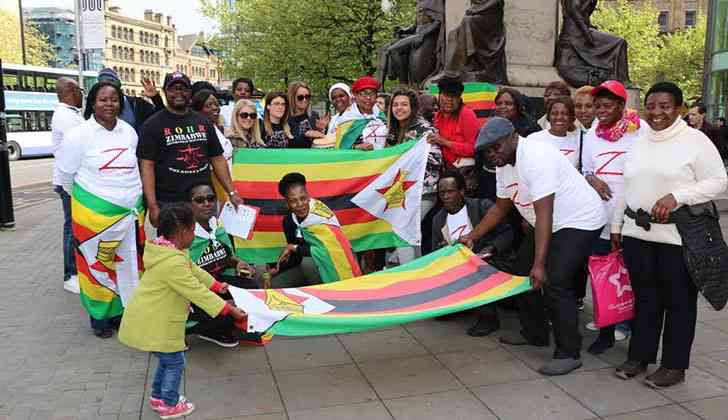
During the past decades, most African economies have struggled to achieve meaningful economic growth rates owing to several reasons. Some of the reasons include a lack of long-term strategies, political instability, debts, poor management of resources, bad prioritisation of resources and recently the impact of the COVID-19 pandemic and now the effects of the war in Ukraine. While the last two have witnessed some shocks, overall most countries on the continent have lacked strategic vision and thus have fallen into the hands of their former colonisers for help.
Some have blamed remnants of colonialisation and the continued hold of Western policies on African countries. While some of these might be true to some extent, it still remains the responsibility of Africans to improve the state of their lives. Western countries do not have an obligation to let go of the resources of Africa. This is because they benefit from those resources. The only way that can happen is when African countries fight for their economic sovereignty the same way they did with wars for independence. But that too depends on their political and economical independence and their ability to forge equal partnerships.
Despite the above being the dominant narrative, there are few countries that have demonstrated that it is possible to achieve growth and improve the lives of their people. Some of these include Botswana, Ethiopia, Rwanda, Mauritius and most recently Zambia. Take for example Mauritius which gained independence from Britain in 1968. It has undergone remarkable economic transformation from a low-income, agricultural-based economy to a diversified, upper-middle-income country that has attracted considerable foreign investment and has one of the African region’s highest per capita gross domestic Product. Today it is ranked the first among countries in the Sub-Saharan Africa region, and its overall score is above the regional and world averages.
The most common factor underlying economic growth among some of these countries is having a strategic vision that prioritises economic growth over political drama and noise. Vital to the success of any country is intensified investment in human capital, infrastructure and an investment-friendly environment. This is simply an acknowledgement, as a first step, that a country is developed by its people and resources.
Investment in human capital entails improving access to relevant education, affordable healthcare and improving diet and nutrition as well as other basic needs. Access to these helps to establish a healthy, competent, creative and innovative labour force. And these have to be underlined by a strong sense of patriotism and nationalism among citizens to ensure that a country’s human capital pulls towards the same economic direction.
Investment in infrastructure such as transport, power, industrial and trading platforms, telecommunication, banking systems and others enables people to explore opportunities as well as their potential and allows production and trade to effectively take place. When a country invests in human capital and infrastructure, it promotes a culture of business investment and entrepreneurship. This is how economies are generated.
Locally driven economic growth occurs in a conducive investment environment that is guided by facilitative laws, rules and regulations as well as a stable financial and banking system. People must be able to trade fairly without fear of being bullied, harassed or losing their investments. They need to trust the safety and security of their money in the banks and have the confidence that they will reap the gains of their savings and investments.
Once these conditions are established, people will start to see the incentive of being innovative and working hard for long hours to increase their earnings, investments and savings with the hope that they will be rewarded with high earnings, profits and investment returns. They will be encouraged to save for the future.
- The brains behind Matavire’s immortalisation
- Red Cross work remembered
- All set for inaugural job fair
- Community trailblazers: Dr Guramatunhu: A hard-driving achiever yearning for better Zim
Keep Reading
It is these conditions that drive economic growth, allow for big investments to take place and attract genuine foreign investment. By the time a country opens up its economy to foreign investment, it would have achieved a stronger economic status that makes it a key trading partner that no longer compromises on trading terms and conditions. It is, therefore, not enough to run empty mantras that say a country is open for business when these conditions are not met. A country needs to have the bargaining power to run such a mantra otherwise it lends itself vulnerable to the whims of foreign investors.
In addition, there are vital lessons to be drawn from understanding the unfolding global political and economic dynamics of which African countries can take advantage if they organise themselves. Western countries established their economies during the period of the Industrial Revolution between 1760 and 1840 which was the transition to new manufacturing processes. The period saw the revolutionisation of production and manufacturing — sectors that are considered hard labour. This is what made the western region a global economic centre.
As their economies grew and reached a certain peak stage and their people started to enjoy great standards of life, western countries passed on the global hard-labour sectors to Asian countries including China from which they have also built their economies. It is as simple as when a family’s income increases and reaches a certain economic status, they pass on the household duties to a helper.
Key to the economic success of Asian countries is strategic vision, willingness and preparedness to start from the bottom — just like a helper who uses their income to meet their family’s basic needs. In the past decade, China has been shifting from being an affluent global manufacturing centre to becoming a knowledge and global technology leader, just like the western region chose to be a global hegemon. That global manufacturing void needs someone to take over and if African countries put their house in order, the next two decades may be their turn to turn the corner.










